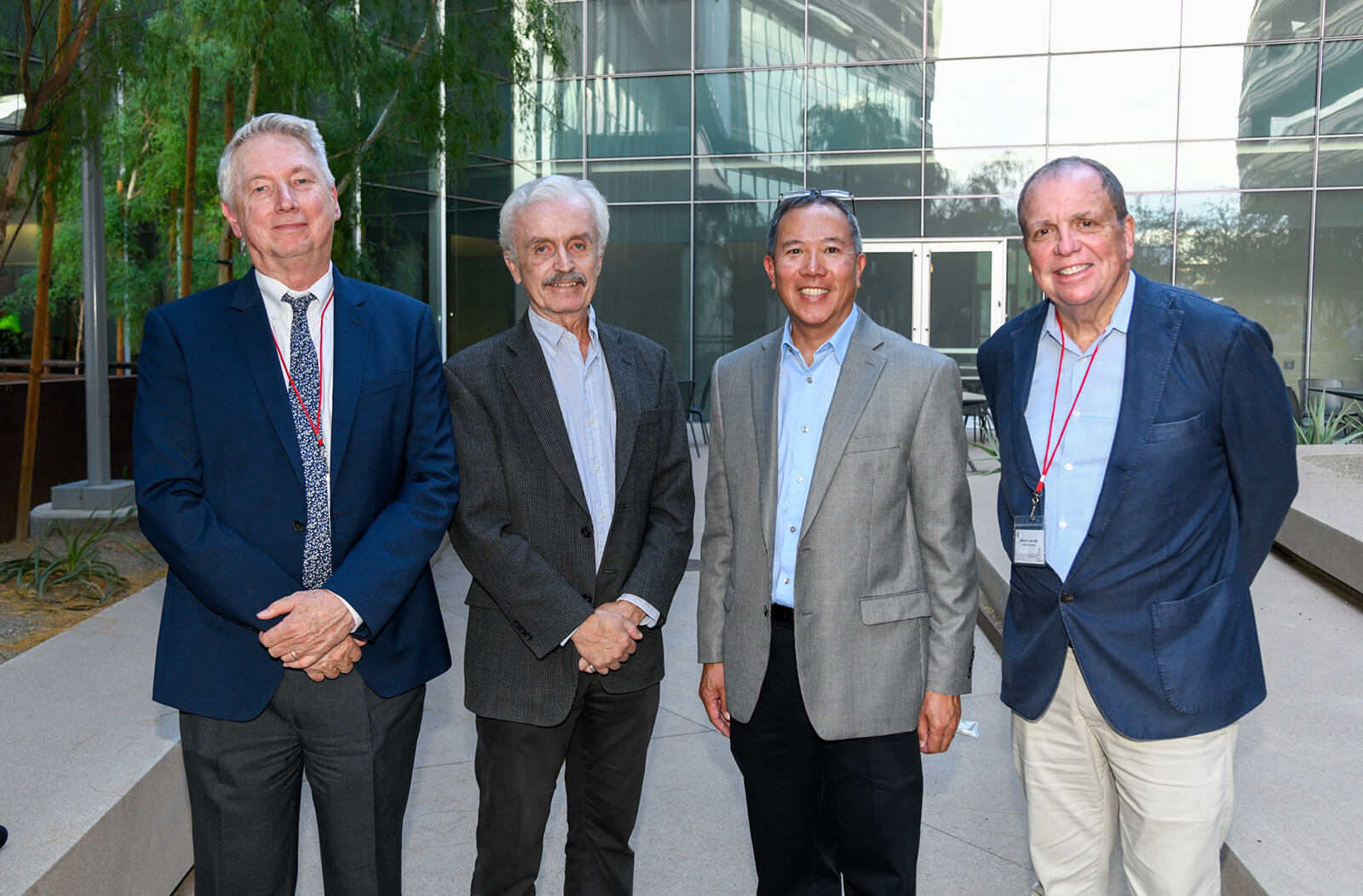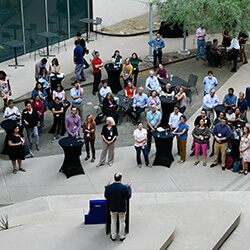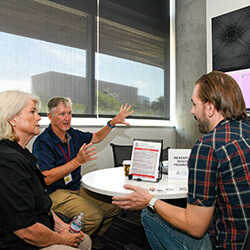
Research Open House Welcomes Attendees to Campus

The University of Arizona College of Medicine – Phoenix Research Office Open House invited the college’s students, faculty, residents and staff to learn more about the resources provided on the Phoenix Bioscience Core, as well as in Tucson.

The event, held on October 6, was followed by a cocktail reception with remarks from leaders such as Guy Reed, MD, MS, dean of the college, and Michael D. Dake, MD, senior vice president for Health Sciences at the University of Arizona.
Dean Guy Reed’s speech primarily focused on the growth of different sectors of the college, especially in research fields. “When you think about the College of Medicine – Phoenix, you should think of research,” Dean Reed said. “There’s been a significant increase in the number of extramurally funded grants, but there’s also been a 4.5-fold increase in the amount of research expenditures.”
Dr. Dake celebrated the funding and grant milestones that U of A Health Sciences received in the last year and also provided insight on where things are headed next for the university.
“I want to extend my appreciation to all of you because, through your effort, the Health Sciences reached a milestone of over $300 million in National Institutes of Health (NIH) grants this past year,” Dr. Dake said. “We are starting another effort that I think you’ll be interested in, and that is elevating our position in biospecimen banking.”
Other speakers included Chris Glembotski, PhD, the associate dean for Research at the college and the director of the Translational Cardiovascular Research Center, and Elliot Cheu, PhD, who is the associate vice president for University Research Institutes.
Dr. Glembotski has been with the college for two years now and was grateful for the opportunity to host an event like this in-person. He discussed the importance of the Research Office adapting with the campus’s quick growth in size.
“We in the Research Office are trying to respond to our growth proactively and make sure we have everything in order, so that when those researchers show up, we can accommodate them,” Dr. Glembotski said. “It’s a great time to grow research in Arizona.”
Regarding funding at the University of Arizona, Dr. Cheu discussed the university’s goal in research as a top-20 public institution.

Attendees were able to tour more than 20 different booths with the opportunity to ask questions and network with other researchers.
Among the Phoenix Research Services booths in attendance were the Biomedical Imaging Core, Flow Cytometry Core, Phoenix Bioscience Core, the Graduate Training Office, UAHS Research Administration and Laboratory Operations.
The event also had booths from the Tucson Research Services such as the Animal Welfare Program, HIPAA Privacy Program, Research Development Services and Sponsored Projects Services, among others.
About the College
Founded in 2007, the University of Arizona College of Medicine – Phoenix inspires and trains exemplary physicians, scientists and leaders to advance its core missions in education, research, clinical care and service to communities across Arizona. The college’s strength lies in our collaborations and partnerships with clinical affiliates, community organizations and industry sponsors. With our primary affiliate, Banner Health, we are recognized as the premier academic medical center in Phoenix. As an anchor institution of the Phoenix Bioscience Core, the college is home to signature research programs in neurosciences, cardiopulmonary diseases, immunology, informatics and metabolism. These focus areas uniquely position us to drive biomedical research and bolster economic development in the region.
As an urban institution with strong roots in rural and tribal health, the college has graduated more than 1,000 physicians and matriculates 130 students each year. Greater than 60% of matriculating students are from Arizona and many continue training at our GME sponsored residency programs, ultimately pursuing local academic and community-based opportunities. While our traditional four-year program continues to thrive, we will launch our recently approved accelerated three-year medical student curriculum with exclusive focus on primary care. This program is designed to further enhance workforce retention needs across Arizona.
The college has embarked on our strategic plan for 2025 to 2030. Learn more.